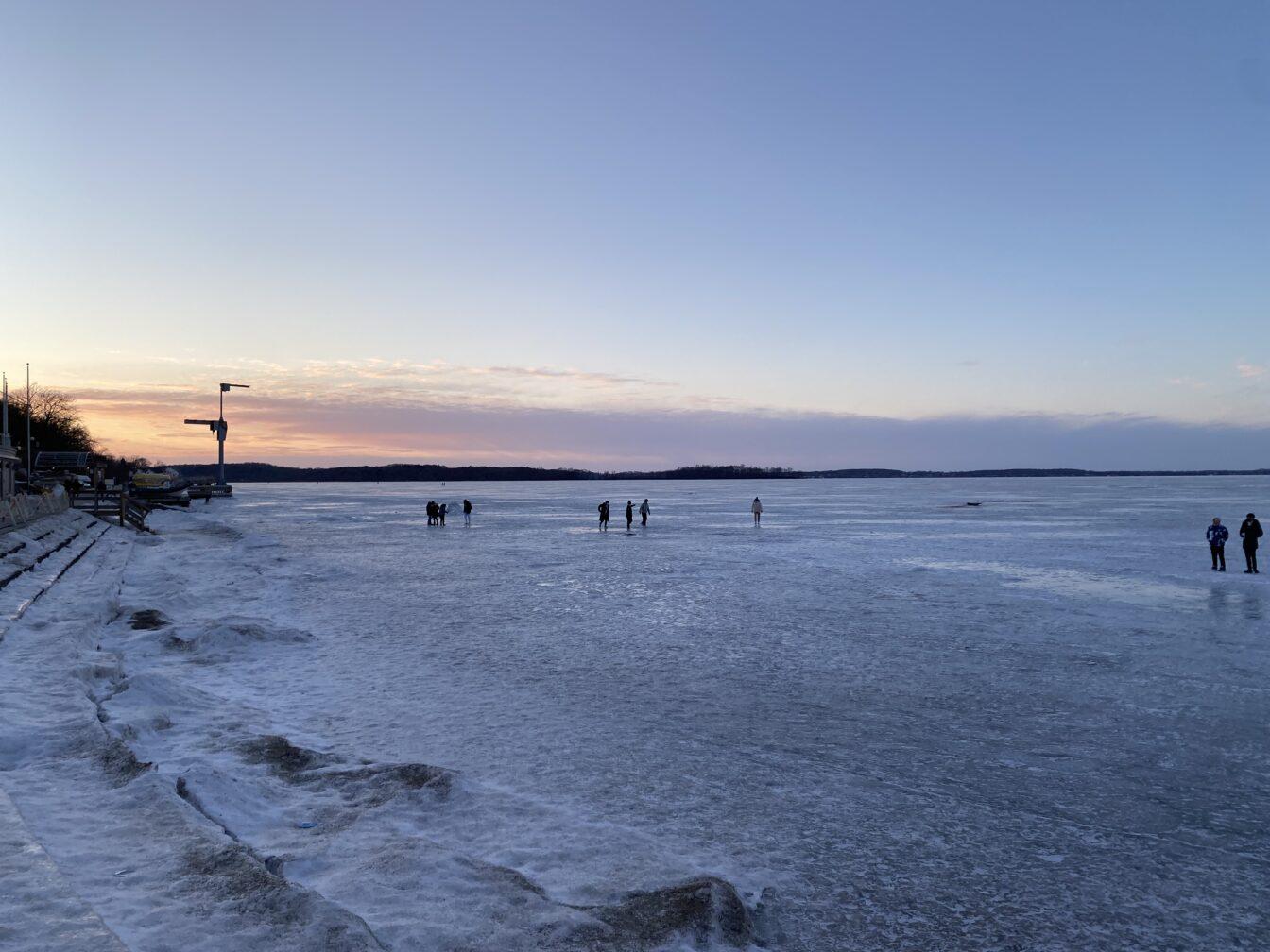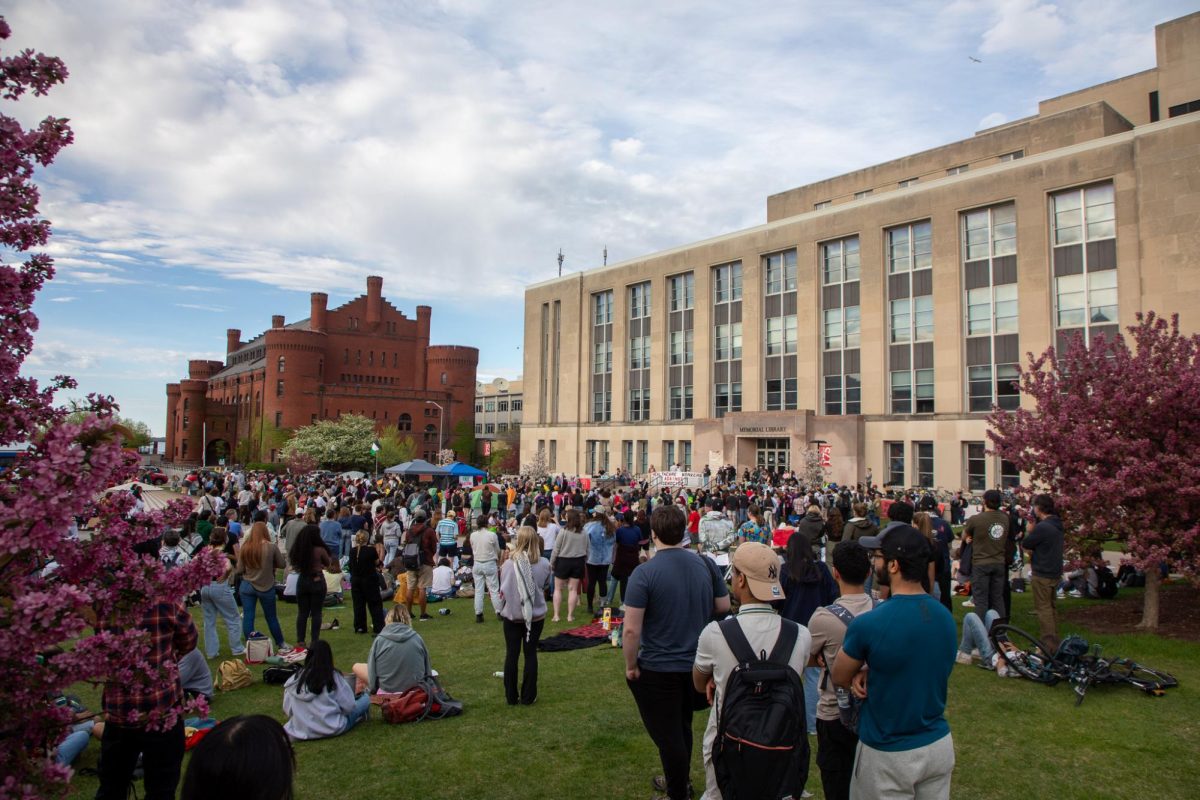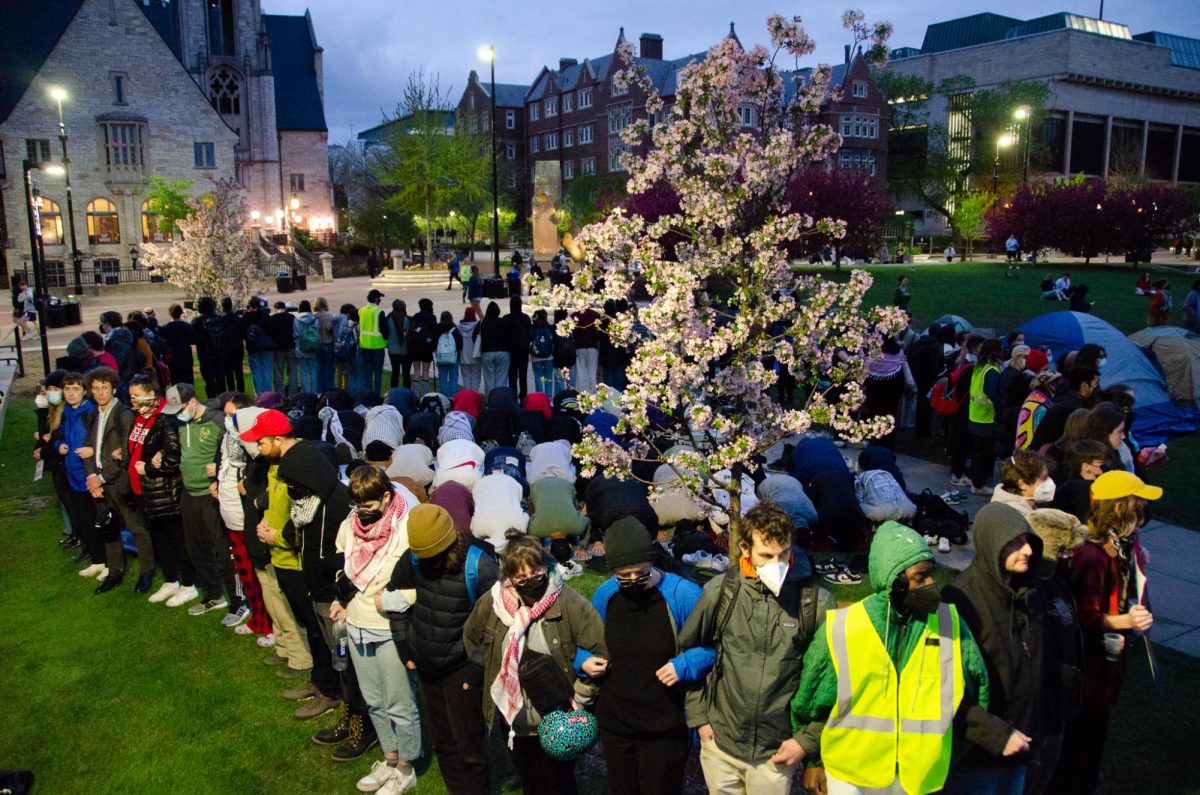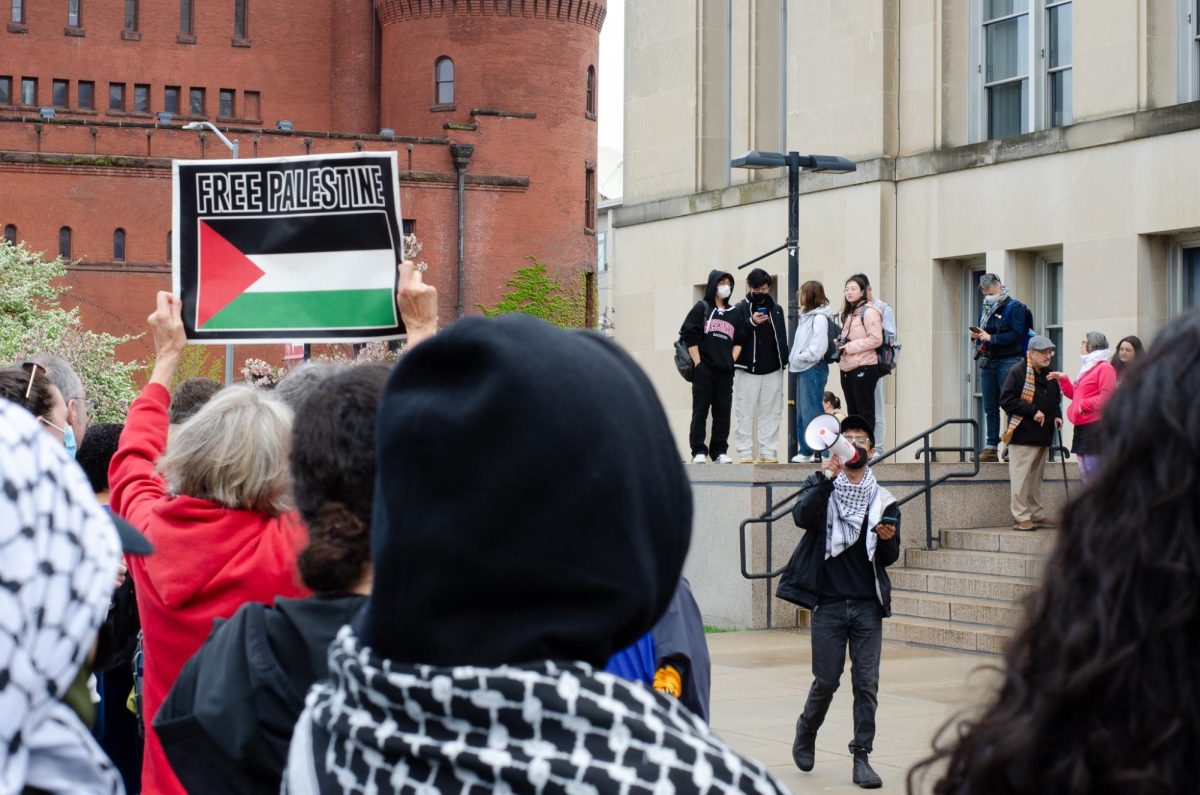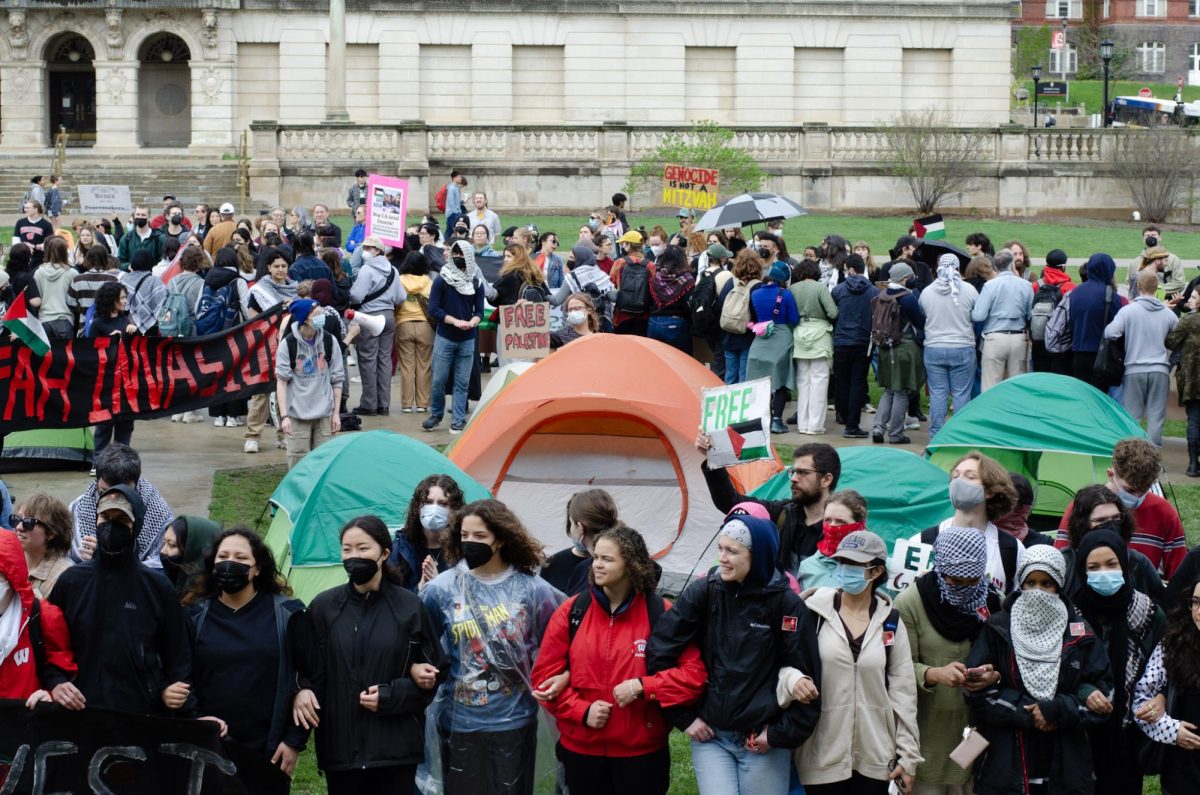The Ojibwe Winter Games will take place on Madeline Island Feb. 11 for the first time in 150 years. The games serve as a chance for middle school students to engage with Ojibwe culture in a week-long competition of traditional games.
The tradition was banned when the United States outlawed gambling in the mid-1800s, according to the Green Bay Press Gazette.
University of Wisconsin students had the opportunity to experience and engage with the culture, stories and activities of the Ojibwe Winter Games through a demonstration Feb. 3 at Lake Mendota.
At the event, community members and students were able to participate in the games normally played at the Ojibwe Winter Games such as spear throwing, but used swinging hoops suspended from tripods and foam targets and to emulate target animals, according to the La Crosse Tribune.
Menominee Nation signs agreement with state of Wisconsin to end assimilation
Affiliated faculty member of the UW American Indian Studies Program Thomas Dubois said the games are a golden opportunity for those who attend.
“Every semester I meet people who have never seen snow, and for them to also get to be connected to a tradition that goes back hundreds of years is a glorious part of going to school in Wisconsin,” Dubois said.
Lac Du Flambeu Public Schools teacher Wayne Valliere, who worked building authentic Ojibwe canoes at Northwestern’s Center for Native American and Indigenous Research, helped coordinators at UW host the event, Dubois said.
In Lac Du Flambeau, Wisconsin, a prominent home of the Ojibwe, Valliere teaches his students about Ojibwe culture, according to the National Endowment of the Arts.
Akiing 8th Fire, an Indigenous community development organization, is organizing the actual Ojibwe Winter Games games on Madeline Island in Northern Wisconsin, the historical capital of the Ojibwe Nation.
Revitalization of Ojibwe culture has become a mission for Indigenous advocates such as Wisconsin Oneida citizen of Ojibwe heritage Paul DeMain, who have had their traditions stripped away from them over the last few centuries. DeMain sits on the board of Akiing 8th Fire.
Last winter, DeMain got together with a small group of friends to throw snow snakes on the island. This year, the group is expecting several hundred people to make the journey to Madeline Island.
The Winter Games include games like Gooniikaa-Ginebig Ataadiwin, or snow snakes, where participants aim to slide a wooden javelin across the snow as far as possible, according to the Ojibwe Winter Games website. If done correctly, throws can easily exceed several hundred yards in length. In Apaginaatig Ataadiiwin, or spear throwing, participants wield the atlatl – a spear-like hunting instrument once used by Indigenous hunters. The participant who can throw the atlatl farthest and most accurately is considered the winner.
DeMain emphasized the importance of continued support and participation in the games.
“It’s part of us, our ceremonies are part of us, and they’re being revived along with the language, history, culture and storytelling during winter months,” DeMain said. “It’s not just one movement in one direction — it’s a circle that’s moving back out and gathering things that were once ours.”
The celebration of the games goes back hundreds of years, DeMain said, though it wasn’t until the early 1870s that the U.S. government banned the tradition to prevent supposed wagering and gambling associated with the event.
According to DeMain, the wagering aspect is essential to the gift-giving spirit of the games. Before the games were played, opposing tribes would add utilities such as blankets, food and tools to a winnings pot that was awarded to the victor. Leaders of Ojibwe tribes didn’t see this practice as wagering but instead as redistributing wealth throughout the community, DeMain said.
Following the banning of the games, the Ojibwe community was left without a tradition central to their way of life, as the Ojibwe judiciary would often use games such as lacrosse and snow snakes to settle disputes between members of the community, according to DeMain. Additionally, the Ojibwe games were designed to sharpen and enhance survival skills. Participants practiced their hunting skills in snow snakes and spear throwing and learned how to move more quickly across the snow in snowshoe racing.
End of pandemic FoodShare benefits likely to spike food pantry demand
According to UW folklore professor Marcus Cederström, UW students have access to resources to strengthen cultural revitalization efforts on campus, such as Wunk Sheek, the Multicultural Student Center and ethnic studies classes. Cederström said getting involved with the community is simpler than many students believe it to be.
“Just go – go to some of the events they’re hosting,” Cederstrom said. “You don’t have to join, you’re just being invited to learn.”








